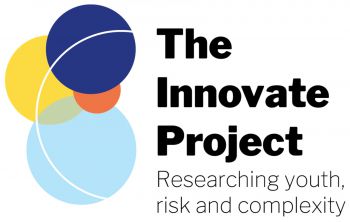News
ESRC showcases Sussex-led impact case study
By: Heather Stanley
Last updated: Wednesday, 4 December 2024

The Innovate Project was a 4yr national study funded by the ESRC which ran from 2019-2023
The Economic and Social Research Council (ESRC), the UK’s largest funder of economic, social, behavioural and human data science, has highlighted an impact case example on its website of how The Innovate Project is helping to improve children’s social care systems for vulnerable young people and their families by encouraging and implementing new practices.
Led by Michelle Lefevre, Professor of Social Work, the four-year study is one of four large national collaborative projects funded by the Economic and Social Research Council (ESRC) to investigate how innovation can be stimulated in social care services and systems.
The Sussex team, which includes co-investigators Professors Gillian Ruch and Kristine Langhoff, has been working in collaboration with Durham University and national practice development organisations, Research in Practice and Innovation Unit, to explore the unique nature of innovation in child and adolescent safeguarding contexts. Together, the team has studied current models and practices in the sector, including the undertaking of an in-depth ethnographic study of new approaches to young people experiencing risks beyond their home and family - such as child sexual and criminal exploitation, and peer-to-peer abuse and violence.
A key aim of the ESRC funding is to invest in research which can make an impact on our lives and the world we live in. The impact case example reports how the project has used publications, practice tools, and webinars and conferences to engage with a learning network of interested organisations, the wider social care sector nationally, sector leaders and policy-makers. Emerging evidence shows how the project has helped practice leaders understand what resource capabilities and contextual conditions are needed to support innovation in the cash-strapped public sector, as well as helping services prepare better for when things go wrong along the innovation journey.
The new understandings generated by the project of how services should implement new safeguarding approaches - such as trauma-informed practice, contextual safeguarding and transitional safeguarding - are already bearing fruit for local authorities. Children and young people in North Lanarkshire, for example, are demonstrably safer now because risks are being identified earlier and responded to more effectively.
Other Sussex research staff involved in the project include Professor Lisa Holmes, Dr Jeri Damman, Dr Reima Ana Maglajlic, Dr Nathalie Huegler and Dr Roni Eyal-Lubling.